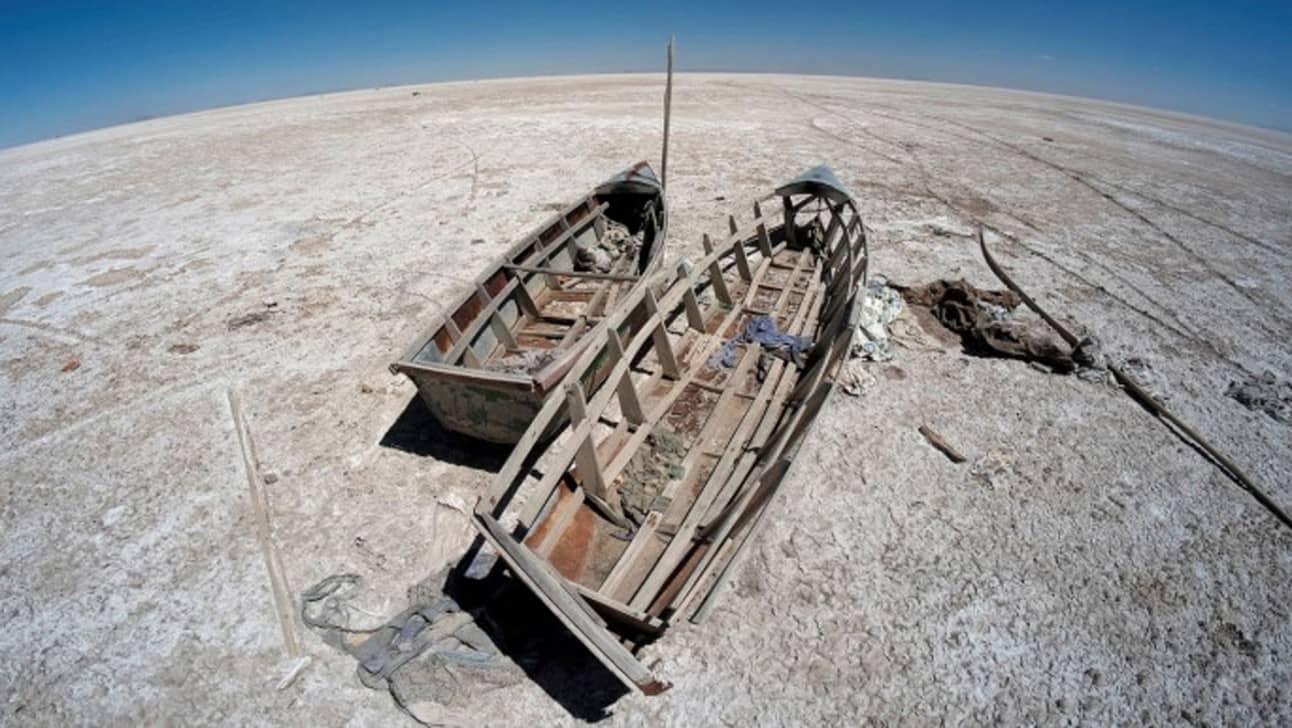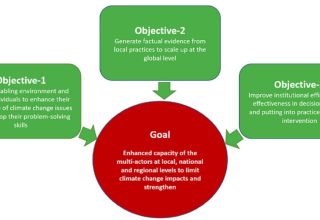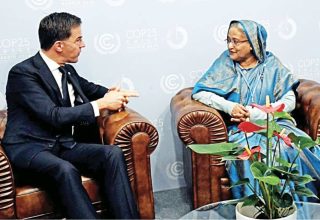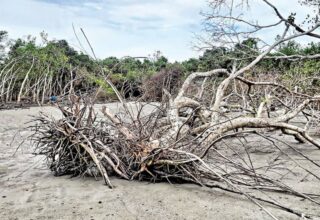
Bangladesh is planning to adapt to the adverse impacts of human-induced climate change and aiming to become a resilient country by 2030, as both the Sustainable Development Goals (SDGs) and the Paris Agreement on Climate Change goals are supposed to be achieved by that year.
At the same time, we are looking forward to graduating out of the Least Developed Countries (LDC) status in the next few years and need to also plan this transition carefully. One important dimension of transitioning from being an LDC to becoming a developing country is for knowledge generation and capacity-building to be carried out by our own citizens, rather than depending on international consultants to provide us with technical assistance.
How can we address this aspect of knowledge generation and capacity building for different stakeholders in the country to help up transition into a climate resilient country within a decade?
The first point to make is that we have already laid a significant foundation for several aspects, such as the creation of a climate change knowledge platform called Gobeshona, which now includes more than 50 universities and research institutions in Bangladesh that are working on climate change and sharing knowledge with decision-makers (including national, sectoral, and local policy and decision makers around the country). This is an excellent foundation upon which to invest to enhance effectiveness as well as reach.
The second foundation that has already been effectively laid in Bangladesh is the adoption of the Eighth Five Year Plan, the Perspective Plan to 2041 and the Delta Plan to 2100. These, together with the updated Bangladesh Climate Change Strategy and Action Plan (BCCSAP), the National Adaptation Plan (NAP), and Nationally Determined Contribution (NDC), provide a relevant foundation upon which a major new and coordinated initiative for enhancing knowledge generation and sharing as well as capacity-building can be developed.
The third foundation is the excellent initial investment on knowledge generation, knowledge sharing, and initial capacity-building across all the major stakeholders regarding the problem of climate change as well as how to tackle it. Hence, Bangladesh has laid excellent foundations upon which we can rapidly expand and enhance our efforts to combat climate change going forward.
How we can successfully implement these plans is another matter, of course.The first element is to allocate adequate financing from the national exchequer to achieve this aim. Bangladesh has already been making investments in the Bangladesh Climate Change Trust Fund (BCCTF) and the Climate Change Budget within the national budget, which amounts to nearly eight percent of the total national budget in 2020/21, spread across 25 ministries to implement this budget allocation. At the same time, there is global climate change financial aid coming in from sources like the Green Climate Fund (GCF) and the Adaptation Fund (AF) of the Global Environment Facility (GEF).
My recommendation is not that we need more money to support the proposed investment in knowledge sharing and capacity-building, but that we need to allocate only a small percentage of the existing national climate change budget towards knowledge sharing and capacity building. My view is that we should allocate up to one percent of the national budget over the next 10 years which, if invested wisely, will give us a sizeable return on the investment over that time period.
As for the ways in which such an investment could be deployed and implemented, there are a number of existing options which would not require inventing new institutions. One such option is to give the responsibility to the BCCTF under the Ministry of Environment, Forest and Climate Change (MOEFCC). Another option might be the Planning Commission, wherein it can feed into the Eighth Five Year Plan as well as the 2041 Perspective Plan and Delta Plan. Still another option might be with the SDG Monitoring unit under the Prime Minister’s Office (MPO). In other words, there are several excellent existing options to consider for implementing such an investment plan without the need to create any new institutions.
The final aspect of this idea is the decision of the Climate Vulnerable Forum (CVF) countries to develop Climate Prosperity Plans over the next 10 years which Bangladesh, as the current Chair of the CVF, will be initiating and which the Prime Minister has already declared will be called the Mujib Climate Prosperity Plan (MCPP) over two five-year cycles going forward. The first five years will be for scoping major investments and the second five years for scaling up the investments. Bangladesh will also be able to share its experiences with the other CVF countries and it may be worth recommending them to also invest one percent of their respective national budgets to help us generate knowledge and advance capacity-building to tackle climate change under their respective Climate Prosperity Plans.
Thus, the upcoming MCPP will be an excellent vehicle to include this proposal of investing substantially in targeted knowledge generation from the universities and research institutions of our own country, while also investing in capacity-building of both government and non-government sectors, so that the country can take a whole-of-society approach to becoming both a climate resilient and prosperous country by 2030.
Bangladesh, thus, can make use of the opportunity to transition from a climate vulnerable developing country to a climate resilient middle-income country within this decade.
Originally this article was published on March 17, 2021 at Daily Star. The author Prof. Saleemul Huq is the director of the International Centre for Climate Change and Development (ICCCAD) at the Independent University, Bangladesh (IUB).
Email: saleemul.huq@icccad.org






